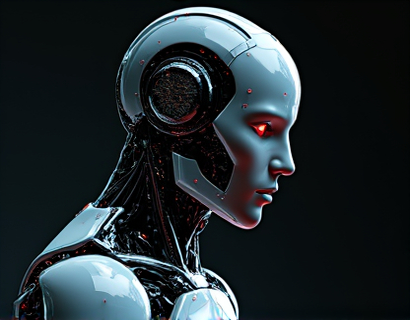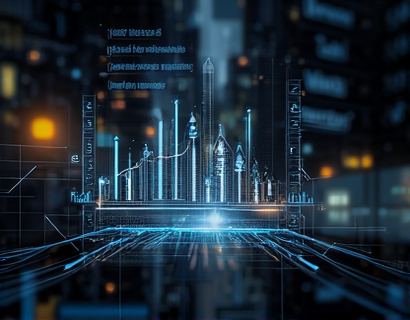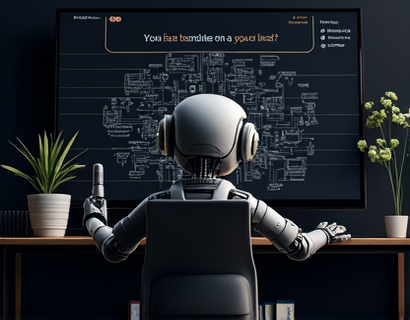Smart Appliances for Modern Living: Embracing the Future of Home Technology
In the rapidly evolving landscape of home technology, smart appliances have emerged as a pivotal component in transforming daily living. These devices, equipped with advanced sensors, connectivity, and user-friendly interfaces, are redefining the way we interact with our homes. This article delves into the latest innovations in smart appliances, exploring how they can seamlessly integrate into modern living, offering unparalleled convenience, efficiency, and comfort.
The concept of smart homes is no longer a futuristic dream but a tangible reality for many households. Smart appliances are at the heart of this revolution, providing a blend of cutting-edge technology and practical functionality. From refrigerators that monitor food freshness to washing machines that optimize energy usage, these devices are designed to simplify and enhance our daily routines. The integration of Internet of Things (IoT) technology has enabled these appliances to communicate with each other and with users, creating a cohesive and intelligent home ecosystem.
Refrigerators: The Smart Heart of the Kitchen
Refrigerators have undergone a significant transformation, evolving from simple storage units to sophisticated smart devices. Modern smart refrigerators come equipped with features that go beyond temperature control and food storage. One of the most notable advancements is the integration of built-in cameras and inventory management systems. These cameras allow users to check the contents of their fridge from anywhere, ensuring that nothing goes to waste. Some models even offer the ability to order groceries directly through connected shopping services, streamlining the entire shopping process.
Another innovative feature is the smart defrost system, which optimizes energy usage by defrosting the refrigerator only when necessary. This not only saves energy but also extends the lifespan of the appliance. Additionally, many smart refrigerators include voice control capabilities, allowing users to interact with virtual assistants like Amazon Alexa or Google Assistant. This integration enables hands-free operation, making it easier to set reminders, play music, or control other smart devices in the home.
Ovens and Ranges: Cooking with Intelligence
The kitchen is the heart of many homes, and smart ovens and ranges are revolutionizing the way we cook. These appliances offer a range of advanced features that cater to both novice and experienced cooks. One of the most appealing aspects is the precision cooking technology, which uses sensors to monitor food temperature and cooking progress, ensuring perfectly cooked meals every time. This technology is particularly beneficial for recipes that require precise temperature control, such as baking or roasting.
Smart ovens often come with touch screens or voice control options, making it easy to adjust settings and monitor cooking processes. Some models even offer recipe suggestions based on the ingredients detected inside the oven, providing a convenient and creative cooking experience. Additionally, these appliances can be integrated with smart home systems, allowing users to preheat the oven or start a cooking cycle remotely through a smartphone app. This level of control not only saves time but also enhances the overall cooking experience.
Washing Machines and Dryers: Efficient Cleaning Solutions
Laundry is a routine task that can be both time-consuming and energy-intensive. Smart washing machines and dryers are designed to make this process more efficient and convenient. These appliances often feature advanced sensors that detect the load size and fabric type, adjusting water and energy usage accordingly. This not only saves resources but also ensures that clothes are cleaned effectively without overusing water or energy.
One of the standout features of smart laundry appliances is their connectivity to the internet. Users can monitor and control these devices through smartphone apps, receiving notifications when a cycle is complete or if there are any maintenance issues. Some models even offer remote start and stop functions, allowing you to manage your laundry from anywhere. Additionally, many smart dryers include moisture sensors that automatically adjust the drying time, preventing over-drying and extending the life of your clothes.
Dishwashers: Clean Dishes, Easy Living
Dishwashers have become an essential appliance in many households, and smart dishwashers are taking this convenience to the next level. These appliances are designed to optimize water and energy usage while providing exceptional cleaning performance. One of the key features is the smart fill system, which adjusts water levels based on the load size and soil level, ensuring efficient use of resources. Some models also include self-cleaning filters and advanced rinse aids, reducing the need for manual maintenance and ensuring spotless dishes.
Connectivity is another significant advantage of smart dishwashers. Users can control these appliances through smartphone apps, scheduling wash cycles, monitoring progress, and receiving notifications when the cycle is complete. Some high-end models even offer integrated water quality sensors, which adjust the washing process based on the water hardness, further enhancing cleaning efficiency. This level of automation and control not only saves time but also contributes to a more sustainable lifestyle.
Vacuum Cleaners: Powerful and Intelligent Cleaning
Vacuum cleaners have also joined the smart home revolution, offering powerful suction and intelligent features that make cleaning easier and more effective. Cordless smart vacuum cleaners are particularly popular, combining portability with advanced technology. These vacuums often come with high-capacity batteries that provide long cleaning sessions without the need for frequent recharging. Some models feature automatic return bases, which guide the vacuum back to its charging station when the battery is low, ensuring it's always ready for use.
Smart vacuum cleaners are equipped with advanced navigation systems, including LiDAR and ultrasonic sensors, which help them map and navigate the home efficiently. These sensors allow the vacuum to avoid obstacles and cover every corner of the house, providing a thorough clean. Some models even offer app control, enabling users to schedule cleaning sessions, monitor battery levels, and receive maintenance alerts. This level of intelligence and convenience makes smart vacuum cleaners a valuable addition to any modern home.
Air Purifiers: Breathing Easy
Indoor air quality is a critical aspect of home comfort and health, and smart air purifiers are designed to address this concern. These devices use advanced filtration systems, such as HEPA filters, to remove pollutants, allergens, and odors from the air. Many smart air purifiers come with sensors that monitor air quality in real-time, adjusting the purification process based on the current conditions. This ensures that the air in your home is always clean and fresh.
Connectivity is a key feature of smart air purifiers, allowing users to control and monitor these devices through smartphone apps. Features like remote operation, scheduling, and maintenance alerts make it easy to maintain optimal air quality without constant attention. Some models even integrate with smart home systems, enabling voice control and seamless coordination with other smart devices. This holistic approach to indoor air quality contributes to a healthier and more comfortable living environment.
Smart Thermostats: Energy-Efficient Climate Control
Thermostats are a fundamental component of home comfort, and smart thermostats are transforming the way we manage indoor temperatures. These devices offer advanced features that not only enhance comfort but also significantly reduce energy consumption. One of the most notable benefits is the ability to learn and adapt to your heating and cooling preferences over time. Smart thermostats use algorithms to predict when you are home or away, adjusting the temperature accordingly to save energy without compromising comfort.
These thermostats can be controlled remotely through smartphone apps, allowing you to adjust settings from anywhere. Features like geofencing use your smartphone's GPS to detect when you are approaching or leaving home, automatically adjusting the temperature to save energy. Some models even integrate with weather forecasts, optimizing heating and cooling based on external conditions. This level of intelligence and convenience makes smart thermostats an essential investment for any modern home.
Smart Lighting: Illuminating the Future
Lighting is often overlooked but plays a crucial role in creating a comfortable and functional living space. Smart lighting systems offer a range of features that enhance both aesthetics and energy efficiency. These systems typically include LED bulbs that can be controlled via smartphone apps or voice assistants. Users can adjust brightness, color temperature, and even set schedules for automatic on/off cycles, creating the perfect ambiance for any occasion.
One of the most innovative aspects of smart lighting is its ability to integrate with other smart devices. For example, you can set your lights to turn on when a smart lock detects that you've entered the home, or adjust the lighting based on the time of day to simulate natural sunlight. This level of integration not only adds convenience but also contributes to a more energy-efficient home. Additionally, some smart lighting systems offer energy usage reports, helping you monitor and reduce your energy consumption.
Conclusion: Embracing a Smarter Home
The integration of smart appliances into modern living is not just a trend but a transformative shift in how we manage our homes. These devices offer unparalleled convenience, efficiency, and comfort, making daily routines easier and more enjoyable. From smart refrigerators that keep track of your groceries to smart thermostats that optimize energy usage, each appliance plays a vital role in creating a seamless and intelligent home ecosystem. As technology continues to advance, the possibilities for smart home innovation are endless, promising a future where our homes are not just places to live but extensions of our digital lives.










































